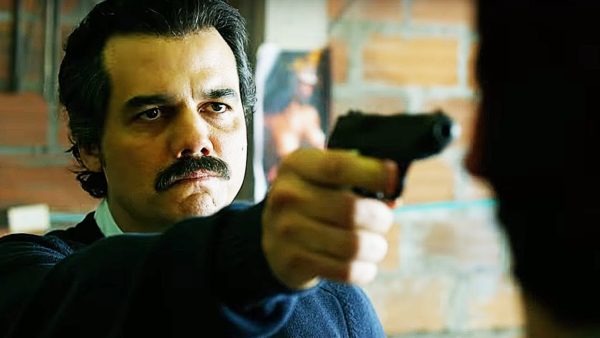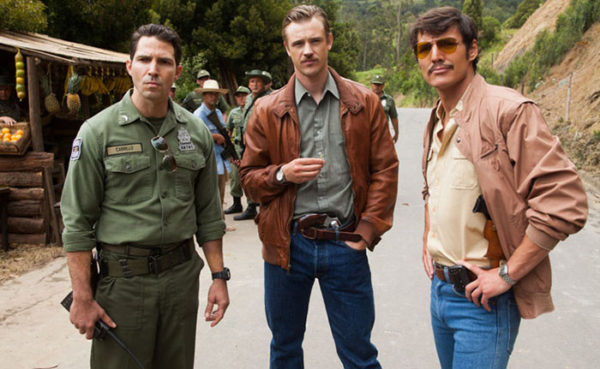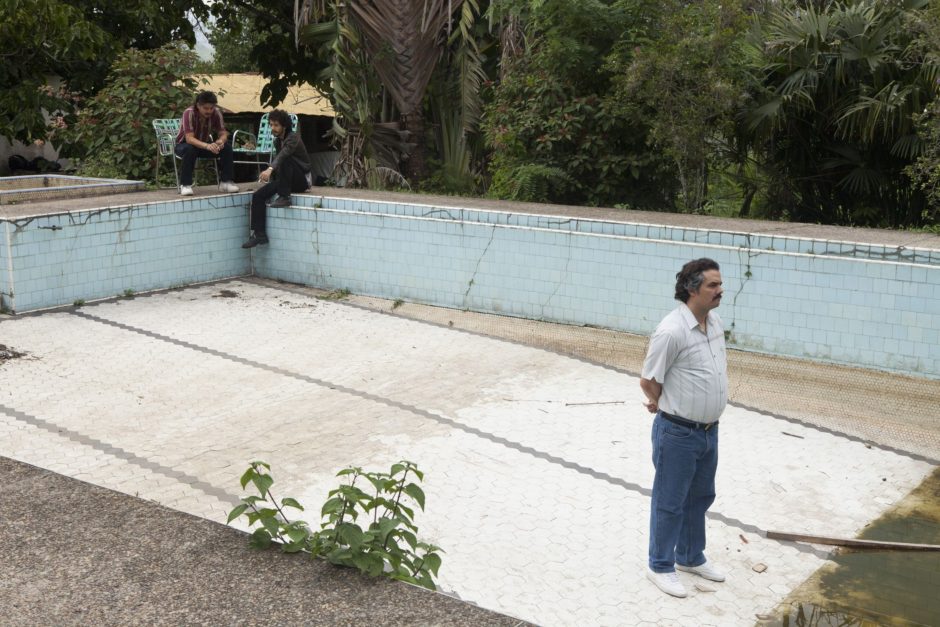The much anticipated second season of Narcos, the taut crime thriller set in Colombia, is now available on the Netflix streaming service. In a word, it’s scintillating. It lives up to expectations.
Focusing on the real-life narco-terrorist Pablo Escobar and the Medellin drug cartel he controlled with an iron fist, Narcos has all the elements of a superior television production: an absorbing story line, a plausible script, exotic locales, a seductively plaintive musical score and, last but not least, a superb cast led by Wagner Mauro, the Brazilian actor who portrays Escobar with zest and relish.

Viewers with even the slightest inkling of current affairs will know in advance that Escobar is a marked man who will be gunned down in the tenth and final installment. Nonetheless, the suspense is palpable.
As the first episode opens, Escobar escapes from a prison with ease and returns to his family’s embrace. Although he’s a cold-blooded killer, Escobar genuinely loves his mother, Hermilda (Paulina Garcia), his wife, Tata (Paulina Garcia), and their two children. He’s a family man.
Fanatically ruthless when seeking revenge, Escobar is a popular figure in the working-class neighborhood named after him. As he mingles with the people, he generously doles out U.S. dollar bills. Whether this scene is accurate is debatable, since Narcos is “inspired” by true events.
Escobar has plenty of enemies. The menacing figures who pull the levers in the Cali cartel regard him as a threat. His fiercest enemy, Judy Moncada (Cristina Umana), wants his head because he murdered her husband. Two American Drug Enforcement Administration agents, Murphy (Boyd Holbrook) and Pena (Pedro Pascal), are hot on his trial. The Colombian government offers a $1.4 million reward for his capture, prompting Escobar to sneak around the city in the trunk of a taxi. A right-wing death squad lusts for his blood. Escobar is willing to return to prison, but only under certain conditions.
In these episodes, Escobar, a scowl on his face and his eyes burning intensely, is usually deep in contemplation as he plots his next moves. He’s certainly aged. He has a pot belly and his black hair is turning grey.
A new U.S. ambassador arrives, determined to “take down” Escobar. Sensing danger, Tata pleads that they must leave the country. He refuses, confident he can weather the storm. The police raid his compound, forcing the Escobars to flee. In response, he launches a deadly assassination campaign against his tormentors.
Escobar’s nemesis, Colonel Carrillo (Horatio Compte), returns from exile in Spain, tasked with the job of tracking him down. Carrillo is tough as nails, but he’s up against it as he matches wits with Escobar.

Narcos is narrated by Murphy, a world-weary agent whose wife returns to the United States because she can’t tolerate the mounting violence to which he’s constantly exposed. In this year’s edition, Pena, a fluent Spanish speaker, plays more of a prominent role than Murphy.
The series is engorged in bloodshed and gore. With Escobar facing increasingly difficult challenges to his authority, he lashes out violently, picking off opponents here and there.
He’s willing to surrender to the authorities if Tata and his children are given safe passage to a foreign country. The attorney-general endorses Escobar’s plan, but the president is dead set against it, forcing Escobar to take even more extreme measures.
In the last three installments, Escobar is on the run, hunted like a wild animal. He finds refuge with his estranged father, a farmer, but this interlude is of short duration. Looking ragged and dishevelled as his luck peters out and his band of hired thugs are killed, Escobar still hopes for a miracle.
Narcos, vibrant, believable and fast-paced, is hugely entertaining, a model of television at its best.
